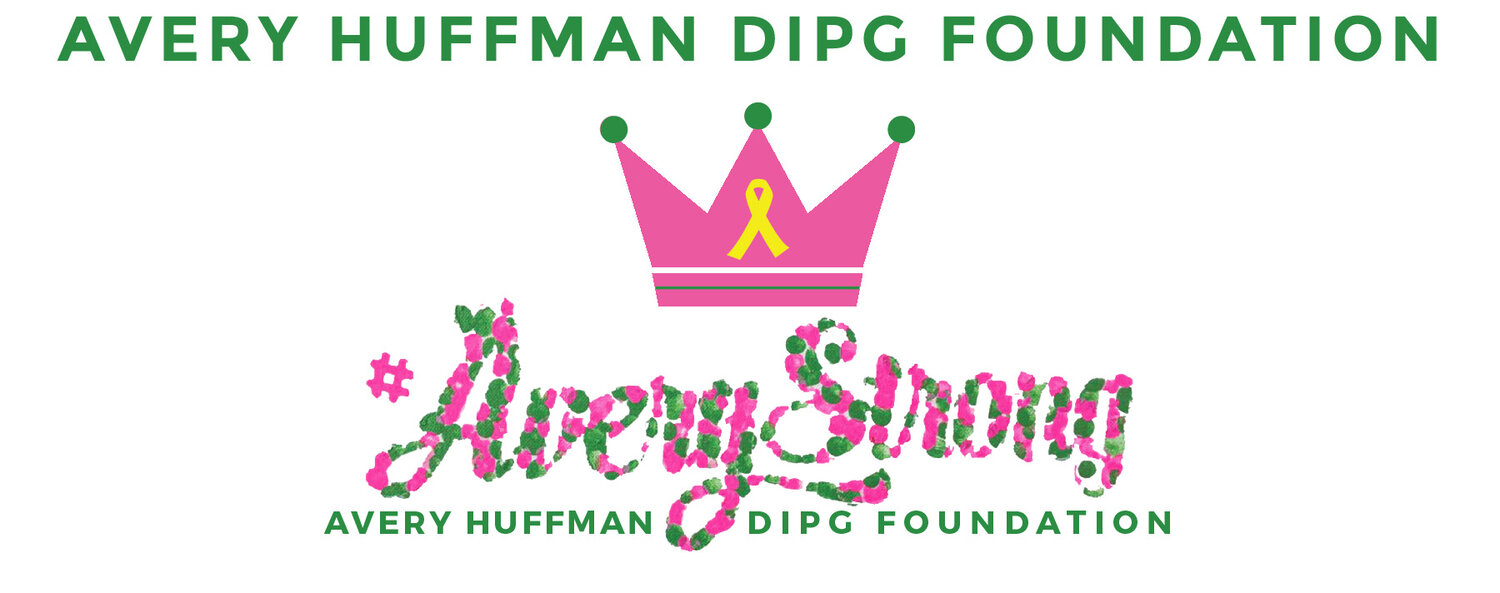Our Grants
The Avery Huffman Defeat DIPG® Foundation originated as a chapter of the Michael Mosier Defeat DIPG® Foundation (from May 2016-Dec 2020) under the DBA of Avery Huffman Defeat DIPG® Foundation within Washington state. The Michael Mosier Defeat DIPG® Foundation was a 501(c)(3) public charity with the EIN 47-4255474 located in Maryland that is committed to the fight against DIPG and honoring their late son Michael. In late 2020, the Huffmans decided to spin off from the Michael Mosier Defeat DIPG® Foundation and establish a separate West-coast-based public charity, named the Avery Huffman DIPG Foundation to carry out similar activities, while also adding in the ability to help also fund DIPG family support.
RESEARCH GRANTS
Hideho Okada, University of California San Francisco, “Next-generation CAR T cell therapies for treatment of DIPG, utilizing sequential “prime-and-kill” circuits to achieve safe and effective tumor targeting”
Daphne Haas-Kogan, Dana-Farber Cancer Institute, “Dependence of DIPGs on DNA polymerase q for DNA repair defines a new therapeutic target”
David Ashley, Duke University “Recombinant Attenuated Poliovirus Immunization Vectors Targeting H3.3(K27M) in DIPG.”
Catherine Flores, University of Florida “Enhancing efficacy of adoptive immunotherapy against DIPG using hematopoietic cells.”
Stephanie Galban, University of Michigan “Targeting Cancer Stem Cells in DIPG.”
Nalin Gupta and Daniel Lim, University of California San Francisco “Use of a Long Non-coding RNA (lncRNA) as a Therapeutic Target in DIPG.”
Daphne Haas-Kogan and Brendan Price, Dana-Farber Cancer Institute “Dependence of DIPGs on DNA polymerase θ for DNA repair defines a new therapeutic
target.”Michelle Monje, Stanford University “The Tumor Microtube Network in DIPG: Targeting a Possible ‘Achilles Heel’ Required to Defeat DIPG.”
NEW INVESTIGATOR GRANTS
Nicholas Vitanza, Fred Hutchinson Cancer Research Center “Optimal combinatorial targeting of HDAC inhibition and radiation in DIPG”
James Stafford, University of Vermont, “Onc201 in DIPG; establishing mechanism, enhancing efficacy and determining long-term phenotypic consequences.”
Zachary Reitman, Duke University, “Enhancing the efficacy of radiation therapy for DIPG”
Stephen Mack, Baylor College of Medicine, “Interrogating the Role of HERV Activation in H3K27M Pediatric Glioma.”
Matthew Dun, University of Newcastle (Australia), “Unlocking oncogene addition to identify synergistic treatment targets for the treatment of DIPG.”
Sameer Agnihotri, University of Pittsburgh School of Medicine “Therapeutic Targeting of Metabolic Vulnerabilities in DIPG”
Pratiti Bandopadhayay, Dana-Farber Cancer Institute “Characterizing long non-coding RNAs as therapeutic targets in Diffuse Intrinsic Pontine Glioma”
Sujatha Venkataraman, University of Colorado Denver “MIC2 inhibition mediated apoptosis in DIPG”
FELLOWSHIPS
Eshini Panditharatna, Dana-Farber Cancer Institute, “Targeting epigenetically induced vulnerabilities in DIPG.” (Mentor: Mariella Filbin)
Chan Chung, University of Michigan, “Targeting DIPGs by interrupting metabolic pathways.” (Mentor: Sriram Venneti)
Alan Jiao, Boston Children’s Hospital, “Dissecting mechanisms of H3K27M oncohistone function in DIPG) (Mentor: Yang Shi)
Xu Zhang, Columbia University, “Mechanistic studies on the WNT5A signal pathway in DIPG tumor.” (Mentor: Zhiguo Zhang)
Jamie Anastas, Harvard University/Boston Children’s Hospital “Targeting chromatin regulation to treat DIPG”
Nneka Mbah, University of Michigan “Therapeutic Targeting of the Disrupted Metabolic State in DIPG to Induce Ferroptotic Cell Death”
Zach Reitman, Harvard University/Dana-Farber Cancer Institute “Prioritizing PPM1D mutations as a target for new DIPG therapies”
Chen Shen, Northwestern University “Dissection of ATRX in Diffuse Intrinsic Pontine Glioma”
Tara Barron, PhD (Stanford University) (mentor: Michelle Monje-Deisseroth, MD PhD) – Targeting the electrophysiological response to GABA in DIPG through neurological and neuropsychiatric drug repurposing.
Marc Garcia Moure (Clinica Universidad de Navarra, Spain) (mentor: Marta M. Alonso Roldan) – Viroimmunotherapeutic strategies to heat up DIPG microenvironment. A comprehensive approach to unleash anti-tumor immune response.

